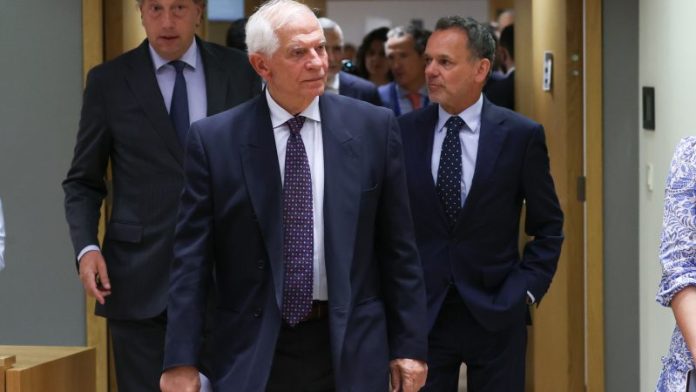Foreign Ministers of the European Union are meeting in Brussels to discuss pressing issues such as Ukraine, Gaza, and Venezuela.
They will exchange views on international issues at an informal Gymnich meeting. Turkish Foreign Minister Hakan Fidan is also invited.
Such meetings do not require decisions and serve as a consultative platform for developing common views and strategies. Due to tensions between Hungary and the EU administration, the meeting was moved from Budapest to Brussels.
The tensions surfaced after Hungarian Prime Minister Viktor Orbán visited the Russian capital Moscow and met with President Vladimir Putin on the fifth day of Hungary’s EU presidency. The visit was heavily criticised by the EU administration, but the Orbán administration claimed he did not represent the bloc’s opinion.
It remains unknown whether Hungary’s Foreign Minister Péter Szijjártó will attend the meeting, but Borrell said he has invited a relevant minister from each EU member state.
Israel-Hamas war
The meeting will focus partly on the situation in Gaza, the West Bank and de-escalation of the conflict. Ministers will discuss the ongoing prisoner exchange negotiations between Israel and Hamas and efforts to achieve a ceasefire in Gaza.
Details of the recently announced EU financial support of 400 million euros to the Palestinian Authority to restructure its economy and ensure its financial sustainability will also be discussed.
War in Ukraine
In addition to the Middle East, the ministers will discuss the war in Ukraine. The meeting will start with a session on Ukraine, which will be addressed by Ukrainian Foreign Minister Dmytro Kuleba.
The discussion will also touch upon increased military aid to Ukraine, including a new EU financial instrument called the Ukraine Assistance Fund.
Venezuela
EU ministers will also discuss the results of Venezuela’s controversial election on 28 July. After President Nicolás Maduro was re-elected with 51.2 per cent of the vote, the bloc called for transparency and restraint.
Borrell confirmed last week that the EU would not recognise the election results until the vote protocols were transparently verified.
